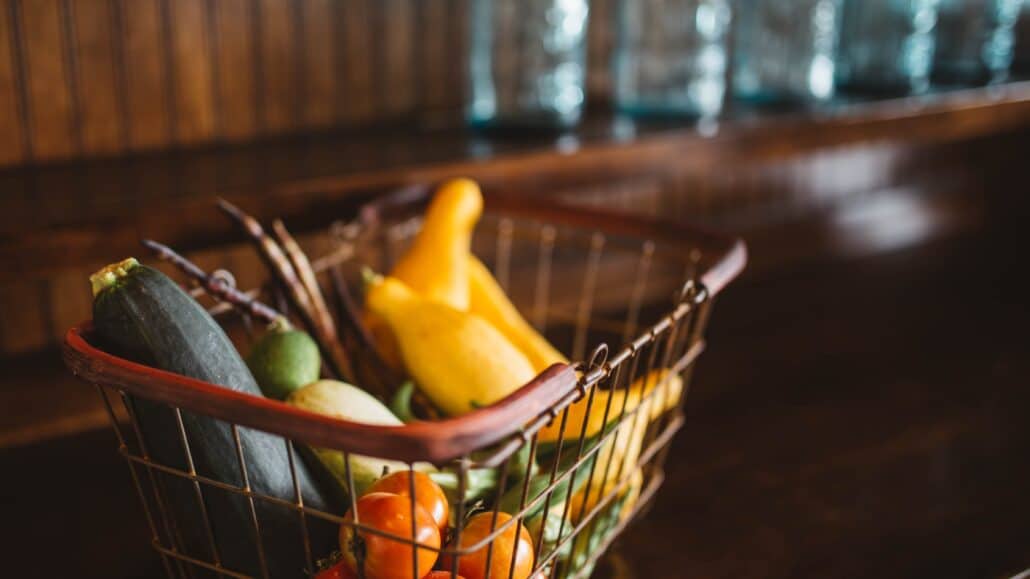I’m doing most of my grocery shopping at a local farmers’ market this summer. I start each week with what I have instead of imagining what I might want. I go to the market early on Saturday morning and get produce and meat and then stop at a local store for the week’s dairy products. Then I go home and take stock of what I have for the week.
It’s an interesting challenge and I find that it’s encouraging me to be much more creative in my cooking. When the salad greens flourish in the cool spring temperatures, salad is often on the menu. Asparagus and eggs are transformed into omelettes and quiche. Grass-fed local meat inspires me to fire up the grill. This year I’ve discovered garlic scapes, the flower stems that need to be cut so that the garlic bulb can grow full and rich.
A Spiritual Discipline
Eating local and seasonal food is an interesting discipline because it involves both lack and abundance, longing and fulfillment. When fruit is available year round, shipped from distant places, we begin to take it for granted. We lose an appreciation for the flavor of fruit picked at the peak of its ripeness.
But when you wait and watch each week for the first asparagus, strawberries, cucumbers, or peaches to arrive at the market stands, you find yourself overwhelmed by the scents and flavors and freshness. You enjoy it to the full while it’s in season, knowing that it will soon be gone.
Each week as the summer progresses, more vendors appear at the market. The variety and abundance increases. Toward autumn, the fruits and vegetables are much heartier. Unlike the ephemeral greens and berries, apples and root vegetables can be stored for long periods of time, providing food for the winter months when the fields lie fallow.
Not Bread Alone
When you know the farmers who are planting and harvesting the food you eat, you become keenly aware of the labor involved. You begin to notice the weather and the impact—positive or negative—that it may have on the harvest. You begin to understand the real costs of growing and transporting food and what it means to pay a fair price. Shopping at the market also takes on a community aspect as vendors and customers greet one another each week. Two of the vendors at the market I attend hold a monthly potluck on their farm with presentations by local chefs on cooking with local produce.
All of this makes me think of the Israelites wandering in the desert, gathering the manna and quail that the Lord provided each day. It gives new meaning to the phrase in the Lord’s Prayer, “Give us this day our daily bread.” It transforms the daily act of cooking and eating into something that I’m less likely to take for granted.
It reminds me of the many people who find themselves stretching an inadequate amount of food to feed their families. And it gives me a much deeper appreciation for God’s creation.








